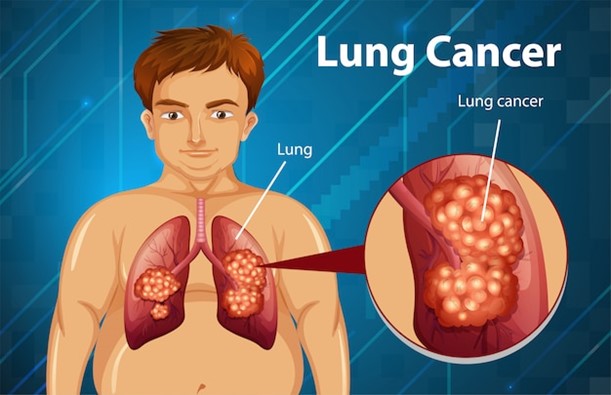Lung cancer is a significant health concern globally, including in South Africa, where it is one of the leading causes of cancer-related deaths. Detecting lung cancer in its early stages is crucial for successful treatment and improved outcomes. Understanding the symptoms associated with lung cancer can help individuals in South Africa recognize potential warning signs and seek timely medical attention. Here are some common symptoms to be aware of:
- Persistent Cough: A persistent or worsening cough that lasts for more than a few weeks can be an early sign of lung cancer. It may be accompanied by a change in the nature of the cough, such as a chronic cough that produces blood, rust-colored sputum, or an unusually hoarse or raspy voice.
- Shortness of Breath: Unexplained shortness of breath or difficulty breathing, especially during routine activities or without any apparent cause, should not be ignored. Lung cancer can cause tumors to obstruct or narrow the airways, leading to breathing difficulties.
- Chest Pain: Lung cancer can cause chest pain that may be dull, constant, or intermittent. The pain may worsen with deep breathing, coughing, or laughing. It can sometimes be mistaken for muscle pain or other less severe conditions.
- Fatigue and Weakness: Unexplained fatigue, weakness, or a general decline in energy levels can be symptoms of lung cancer. Cancer cells can deplete the body’s energy resources and result in fatigue that doesn’t improve with rest.
- Unintended Weight Loss: Significant and unexplained weight loss without changes in diet or physical activity can be a warning sign of various underlying health issues, including lung cancer. Cancer cells can alter the body’s metabolism, leading to unintended weight loss.
- Chest or Bone Pain: Lung cancer that spreads to other parts of the body, such as the bones, can cause pain in those areas. If you experience persistent bone pain, particularly in the back, hips, or other skeletal areas, it is important to get evaluated by a healthcare professional.
- Frequent Infections: Lung cancer can weaken the immune system, making individuals more susceptible to infections. Recurring infections, such as bronchitis or pneumonia, may indicate an underlying health issue that requires investigation.
- Wheezing and Respiratory Changes: Wheezing, a whistling or rattling sound while breathing, can be a symptom of lung cancer. It may occur due to airway obstruction caused by tumors or inflammation. Changes in respiratory patterns or frequent respiratory infections should also be taken seriously.
- Swelling: Lung cancer that affects the lymph nodes in the chest or other parts of the body can cause swelling. Pay attention to any unexplained swelling in the face, neck, or upper body and consult a healthcare professional if it persists.
It is important to note that these symptoms are not exclusive to lung cancer and can be indicative of other respiratory or health conditions. However, if you experience any of these symptoms, especially if they persist or worsen over time, it is essential to consult a healthcare professional for a proper evaluation and diagnosis.
Early detection of lung cancer greatly improves the chances of successful treatment and positive outcomes. In South Africa, where lung cancer is a significant health concern, awareness of the symptoms and regular screenings for individuals at high risk, such as smokers or those with a family history of lung cancer, are crucial.
If you are experiencing any concerning symptoms or have a higher risk for lung cancer, do not hesitate to seek medical advice. Remember, early detection can save lives and increase the effectiveness of treatment options.










